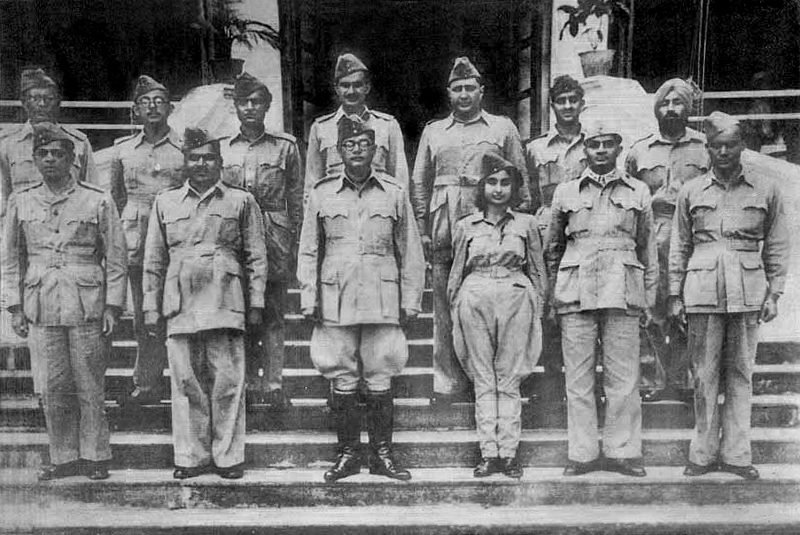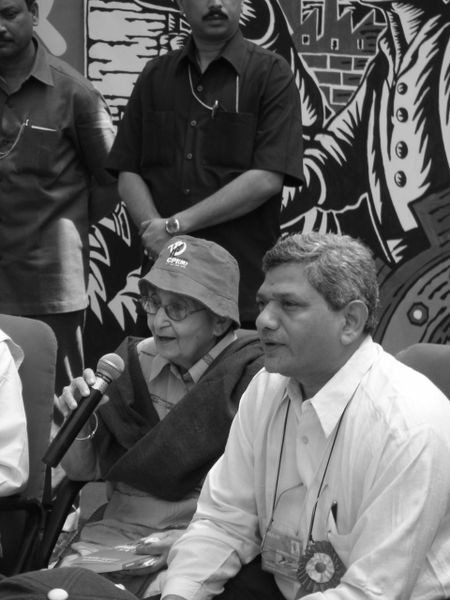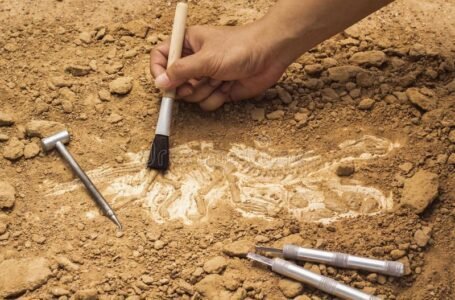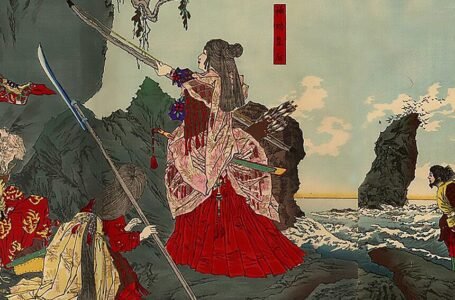Captain Lakshmi Sahgal: Social Activist and female Army Officer

Being a woman needs more confidence; especially in this decade. Though many safety measures or empowerment for women arose, they are still the one who mostly suffers. If a woman wants to achieve her talent or move her life that she likes, she needs more guts. Still, in India, women are not empowered fully. If we look back the years in India, women who came out of their regular zone were very few compared to the total number of women in India. But the influence they made was very generous. India became independent in 1947, many women also contributed their efforts and struggles for their country as well as womanhood. Here we are about to see one such important lady who emerged from the Indian freedom movement, Captain Lakshmi Sahgal.

Personal Life:
Lakshmi Sahgal was born on 24th October 1914 in Anakkara, Ponnani Taluk, Malabar District, British India (Palakkad, Kerala, India). Her father S. Swaminathan, was a criminal lawyer in Madras High Court; her mother, A.V. Ammukutty, (Ammu Swaminathan) was a social worker and independence activist. Ammu Swaminathan belongs to a noble Nair family known as Vadakkath. Mrinalini Sarabhai was the elder sister of Ammu Swaminathan.
Lakshmi finished her degree at Queen Mary’s College and later MBBS degree from Madras Medical College in 1938. In 1939, she was presented with her diploma in gynaecology and obstetrics. She practised medicine in the Government Kasturba Gandhi Hospital in Triplicane, Chennai. Lakshmi got married at a very young age to Pilot, P.K.N. Rao. The marriage with Rao did not succeed and ended in a divorce. Later she married Colonel Prem Kumar Sahgal, an Indian National Army officer. The couple had two daughters, Subhashini Ali and Anisa Puri. Lakshmi also practised to be an atheist.

Lakshmi’s service as a Doctor and Social Activist:
By the time after finishing her medical studies and her first failed marriage, Lakshmi moved to Singapore and established a clinic for the poor and migrant workers from India. In 1942, by the time of the Japanese occupation of Singapore, Dr. Lakshmi medically helped the prisoners of the war.
After being arrested by the British and on her return to India after imprisonment, Lakshmi started to raise funds for the families of INA who also returned to India from the war without any penny. She also visited the huge camps that were set up in Madras and Kerala for the INA refugees. When she married Colonel Prem Kumar Sahgal, they were in Lahore; after the partition of India, they moved to Kanpur. She also helped the refugees who came to Kanpur from Pakistan because of the Partition.

In 1971, she joined the People’s Relief Committee of Bengal and made a relief camp and medical emergency camp in West Bengal for millions of refugees who came to India from East Bengal (present Bangladesh). She was also one of the founding members of the All India Democratic Women’s Association in 1981. With the help of the association, she led many activities and campaigns to empower women. In December 1984, she worked with her medical team for the gas tragedy in Bhopal. She visited her patients regularly at her clinic in Kanpur till her 92nd age.
Lakshmi’s contribution to with Indian National Army:
After her failed marriage with P.K.N. Rao, Lakshmi moved to Singapore. While staying there she was closely associated with the Indian Independence League, which was founded by Rash Behari Bose in 1941. She also met some members of Subhash Chandra Bose’s Indian National Army (INA).

The Indian National Army did not get any approval from the occupying Japanese forces about their participation in the war. Subhash Chandra Bose was totally against it and came to Singapore on 2nd July 1943. He also took over the leadership of the Indian Independence League along with the Indian National Army. Lakshmi was inspired and enchanted by the captivating leadership of Subhash Chandra Bose. Later, she expressed her wish to work along with him in the Indian National Army. Lakshmi also heard that Bose also wished to add women to be a part of the organization. So Lakshmi arranged a meeting with him to talk to him about women’s contribution to the army and also to be included. It was also approved by Bose and called, “the Rani of Jhansi regiment”. Soon this news was spread over and women in the country acknowledged the news. They also eagerly wished to join the “All Women Infantry Regiment of INA”. Dr. Lakshmi joined the Rani of Jhansi Regiment and became “Captain Lakshmi”. Later she was also appointed as the Commanding Officer of Rani of Jhansi Regiment which had 1200 women soldiers. Captain Lakshmi was the only Women Minister in Netaji’s Council of Ministers of the Provisional Government of Azad Hind fauj (INA) in Singapore.
The Indian National Army along the regiments marched along with the Japanese army in December 1944 to fight against the British. But in March 1945 the wave of battle turned against them; the INA decided to beat them before they could enter Imphal, the capital city of Manipur. During that time, Captain Lakshmi was arrested by the British army in May 1945 and was captivated for a year. After her imprisonment for a year, she was sent to India to stand trial. The trials in Delhi were a turning point in the Indian Independence Struggle and also brought the end of British colonialism in India.

Post-Independence services:
In 1971, Lakshmi Sahgal joined the Communist Party of India (Marxist); and also represented the party in Rajya Sabha. She also worked to restore peace in Kanpur in the anti-Sikh riots of 1984. In 1996, she was arrested for the campaign against the Miss World Competition in Bangalore.
In 2002 four left-wing parties nominated Lakshmi Sahgal for the Indian President Election. She was the only opponent of A.P.J. Abdul Kalam. But she lost the election and Kalam became the President of India in the 2002 election.
Lakshmi Sahgal died at the age of 97 on 23rd July 2012.

Books and Legacies:
- Lakshmi was awarded the Padma Vibhushan in 1998 by the Indian Government.
- In 2010, she was granted an honorary Doctorate by the University of Calicut.
- She helped the world even after her death, her body was donated to Ganesh Hankerr Vidyarthi Memorial Medical College for Medical Research.
- She wrote down her life experience in a Book, named: A Revolutionary Life: Memoirs of a Political Activist in 1997. This book was also translated to Hindi as, Mera Jeevan Sangharsh.
Till her death, Lakshmi dedicated her life to the people of her country; especially women. Women like her and her life experience must be noted and brought out to this generation of people to show them how to survive the world.


